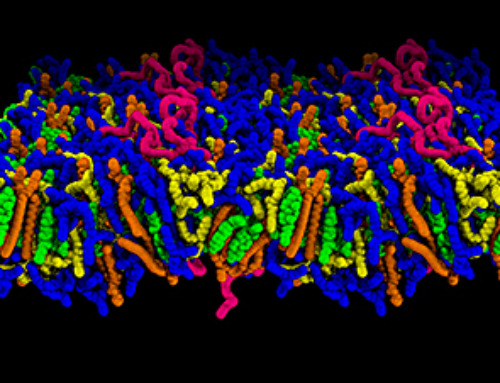A survey led by researchers from the Center for Quantitative Health at Massachusetts General Hospital and Harvard Medical School has analyzed the association between self-reported social media use and irritability among US adults. Frequent social media use, especially among active posters, was correlated with higher levels of irritability.
Existing studies on social media and mental health predominantly focus on depressive symptoms, with limited attention to other negative emotions such as irritability. Irritability, defined as a tendency toward anger and frustration, has been linked to functional impairments, poorer mental health outcomes, and suicidal behaviors.
While prior research has established connections between social media use and depressive symptoms, the extent to which social media engagement is associated with irritability or its influence on depression and anxiety has remained uncertain.
In the study, “Irritability and Social Media Use in US Adults,” published in JAMA Network Open, the research team used data from two waves of the COVID States Project, a nationwide nonprobability web-based survey conducted between November 2, 2023, and January 8, 2024, which included questions about social media use and irritability.
Researchers evaluated the relationship between social media use and irritability by analyzing responses from 42,597 participants using multiple linear regression models.
The survey collected sociodemographic data, self-reported social media usage, and measures of irritability. Participants completed the Brief Irritability Test (BITe), which consists of five statements evaluating irritability symptoms over the previous two weeks. Scores range from 5 to 30, with higher scores indicating higher levels of irritability. The analysis also included depression and anxiety metrics to account for overlapping psychological symptoms.
Social media use was categorized based on frequency: never, less than once per week, once per week, several times per week, once per day, several times per day, or most of the day. Platforms analyzed included Facebook, Instagram, TikTok, and Twitter/X. Frequency of active posting, political engagement, and political affiliation were also examined to identify potential confounding factors.
Participants had a mean age of 46 years, with 58.5% identifying as women, 40.4% as men, and 1.1% as nonbinary. Among respondents, 78.2% reported daily use of at least one social media platform. Frequent social media use correlated with higher irritability scores, even after adjusting for anxiety and depression.
For example, participants using social media most of the day scored 3.37 points higher on the BITe in unadjusted models. After adjusting for anxiety and depression, the increase remained significant at 1.55 points.
Platform-specific analyses revealed a dose-response relationship between posting frequency and irritability. Posting multiple times per day was associated with the highest irritability levels across all platforms, with TikTok users showing the largest increase (1.94 points; 95% CI, 1.57-2.32 points).
Political engagement variables, such as frequent political posting or consuming political news, were associated with increased irritability. Political engagement did not diminish the observed relationship between social media use and irritability, though following political news “not very closely” was associated with a slight decrease.
High social media engagement levels, particularly frequent posting, were associated with greater irritability in US adults. While the study could not establish direct causation, findings suggest a potential feedback loop relationship, where irritability may both influence a desire to engage and increase irritation from social media use.
Further research is needed to explore the mechanisms driving this association and its implications for public health, as well as possible intervention strategies.
More information: Roy H. Perlis et al, Irritability and Social Media Use in US Adults, JAMA Network Open (2025). DOI: 10.1001/jamanetworkopen.2024.52807
News
Scientists Finally Solve a 30-Year-Old Cancer Mystery Hidden in Rye Pollen
Nearly 30 years after rye pollen molecules were shown to slow tumor growth in animals, scientists have finally determined their exact three-dimensional structures. Nearly 30 years ago, researchers noticed something surprising in rye pollen: [...]
NanoMedical Brain/Cloud Interface – Explorations and Implications. A new book from Frank Boehm
New book from Frank Boehm, NanoappsMedical Inc Founder: This book explores the future hypothetical possibility that the cerebral cortex of the human brain might be seamlessly, safely, and securely connected with the Cloud via [...]
How lipid nanoparticles carrying vaccines release their cargo
A study from FAU has shown that lipid nanoparticles restructure their membrane significantly after being absorbed into a cell and ending up in an acidic environment. Vaccines and other medicines are often packed in [...]
New book from NanoappsMedical Inc – Molecular Manufacturing: The Future of Nanomedicine
This book explores the revolutionary potential of atomically precise manufacturing technologies to transform global healthcare, as well as practically every other sector across society. This forward-thinking volume examines how envisaged Factory@Home systems might enable the cost-effective [...]
A Virus Designed in the Lab Could Help Defeat Antibiotic Resistance
Scientists can now design bacteria-killing viruses from DNA, opening a faster path to fighting superbugs. Bacteriophages have been used as treatments for bacterial infections for more than a century. Interest in these viruses is rising [...]
Sleep Deprivation Triggers a Strange Brain Cleanup
When you don’t sleep enough, your brain may clean itself at the exact moment you need it to think. Most people recognize the sensation. After a night of inadequate sleep, staying focused becomes harder [...]
Lab-grown corticospinal neurons offer new models for ALS and spinal injuries
Researchers have developed a way to grow a highly specialized subset of brain nerve cells that are involved in motor neuron disease and damaged in spinal injuries. Their study, published today in eLife as the final [...]
Urgent warning over deadly ‘brain swelling’ virus amid fears it could spread globally
Airports across Asia have been put on high alert after India confirmed two cases of the deadly Nipah virus in the state of West Bengal over the past month. Thailand, Nepal and Vietnam are among the [...]
This Vaccine Stops Bird Flu Before It Reaches the Lungs
A new nasal spray vaccine could stop bird flu at the door — blocking infection, reducing spread, and helping head off the next pandemic. Since first appearing in the United States in 2014, H5N1 [...]
These two viruses may become the next public health threats, scientists say
Two emerging pathogens with animal origins—influenza D virus and canine coronavirus—have so far been quietly flying under the radar, but researchers warn conditions are ripe for the viruses to spread more widely among humans. [...]
COVID-19 viral fragments shown to target and kill specific immune cells
COVID-19 viral fragments shown to target and kill specific immune cells in UCLA-led study Clues about extreme cases and omicron’s effects come from a cross-disciplinary international research team New research shows that after the [...]
Smaller Than a Grain of Salt: Engineers Create the World’s Tiniest Wireless Brain Implant
A salt-grain-sized neural implant can record and transmit brain activity wirelessly for extended periods. Researchers at Cornell University, working with collaborators, have created an extremely small neural implant that can sit on a grain of [...]
Scientists Develop a New Way To See Inside the Human Body Using 3D Color Imaging
A newly developed imaging method blends ultrasound and photoacoustics to capture both tissue structure and blood-vessel function in 3D. By blending two powerful imaging methods, researchers from Caltech and USC have developed a new way to [...]
Brain waves could help paralyzed patients move again
People with spinal cord injuries often lose the ability to move their arms or legs. In many cases, the nerves in the limbs remain healthy, and the brain continues to function normally. The loss of [...]
Scientists Discover a New “Cleanup Hub” Inside the Human Brain
A newly identified lymphatic drainage pathway along the middle meningeal artery reveals how the human brain clears waste. How does the brain clear away waste? This task is handled by the brain’s lymphatic drainage [...]
New Drug Slashes Dangerous Blood Fats by Nearly 40% in First Human Trial
Scientists have found a way to fine-tune a central fat-control pathway in the liver, reducing harmful blood triglycerides while preserving beneficial cholesterol functions. When we eat, the body turns surplus calories into molecules called [...]





















